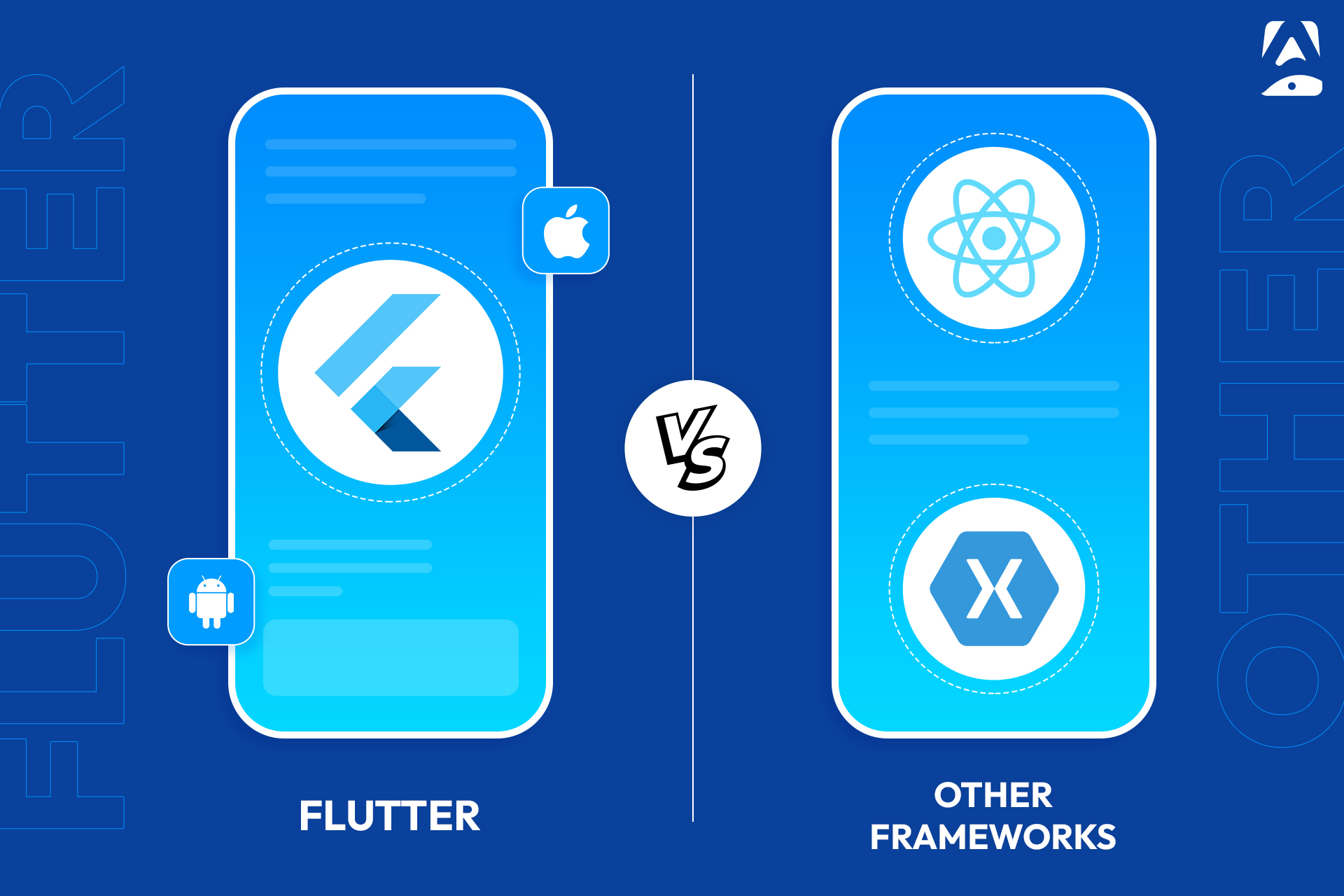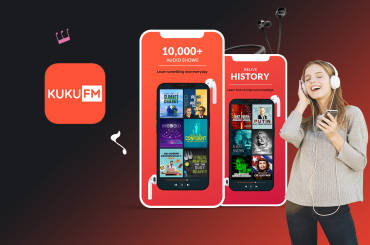Introduction
In the fast-paced world of mobile app development, choosing the right framework can be a critical decision. The choice of framework can significantly impact the development process, user experience, and the success of your app. Among the myriad of options available, Flutter has emerged as a compelling choice, often hailed as the future of mobile app development. In this blog, we’ll explore what sets Flutter apart from other frameworks and why it is gaining momentum as the preferred choice for many developers and businesses.
With an increasing demand for feature-rich, cross-platform apps, developers have been constantly exploring new frameworks and technologies to stay ahead in the game. Flutter, an open-source UI toolkit, developed by Google, has emerged as a game-changer in the mobile app development landscape. Its unique features and capabilities have set it apart from other frameworks, making it a leading choice for developers and businesses.
Understanding Flutter
Flutter is an open source network- it is specially used for web, mobile and desktop single code base. What sets Flutter apart is its ability to provide a high-quality user experience, beautiful UIs, and fast development, all while maintaining consistency across multiple platforms. Key features of Flutter include:
- Hot Reload: Developers can make changes to the code and see the results instantly, without losing the app’s current state.
- Single Codebase: With a single codebase, you can target multiple platforms, including Android, iOS, web, and desktop, saving time and resources.
- Rich Widgets: Flutter comes with a wide range of customizable widgets for creating intricate and interactive user interfaces.
- Performance: Flutter’s compiled code performs at near-native speed, ensuring a smooth and efficient user experience.
- Growing Community: Flutter has a thriving community of developers and businesses, ensuring continued support and updates.
Comparing Flutter with Other Frameworks
To understand why Flutter is considered the future of mobile app development, let’s compare it with some other popular frameworks and technologies.
-
React Native App Development
React Native app development, developed by Facebook, is another prominent cross-platform framework. While it offers many benefits, it has its limitations compared to Flutter:
- Performance: Flutter uses a compiled language (Dart) that offers near-native performance, while React Native relies on JavaScript, which may result in performance bottlenecks.
- UI Consistency: Flutter provides a highly consistent UI experience across platforms due to its extensive set of customizable widgets. React Native relies on native components, which can lead to UI inconsistencies.
- Development Speed: Flutter’s Hot Reload feature allows faster development and debugging, making the development process smoother and more efficient.
- Ecosystem: React Native has been around for longer and has a mature ecosystem, but Flutter is catching up quickly and has the backing of Google.
-
Android App Development Company
Android app development is traditionally done using Java or Kotlin. However, the android app development company like Appikr makes sure to target both Android and iOS platforms efficiently. They work on challenges like code duplication and maintenance. Flutter addresses these issues:
- Cross-Platform Development: Flutter enables developers to write code once and use it for both Android and iOS, reducing development time and costs.
- Consistency: With Flutter, the user interface is consistent across platforms, ensuring a uniform brand experience for users.
- Customization: Flutter’s rich set of widgets allows for highly customizable and visually appealing designs.
- Performance: Flutter’s compiled code ensures that Android apps built with it perform close to native applications.
-
AR App Development
Augmented Reality (AR) app development is an exciting field with diverse frameworks and tools. Flutter also has a place in AR app development:
- ARCore and ARKit Support: Flutter supports ARCore and ARKit, enabling developers to create augmented reality experiences for both Android and iOS devices.
- Cross-Platform AR: Using Flutter, developers can create cross-platform AR apps, reducing development efforts and costs.
- Integration: Flutter’s integration capabilities make it easier to incorporate AR features into existing mobile applications.
-
Top Mobile App Development
For businesses aiming to get top mobile app development, Flutter offers a range of advantages:
- Efficiency: Flutter’s Hot Reload feature speeds up development, allowing developers to see instant results and iterate quickly.
- Quality User Experience: Flutter’s rich set of widgets and near-native performance ensures a high-quality user experience.
- Single Codebase: Developing a mobile app for both Android and iOS with a single codebase can significantly reduce development time and costs.
- Community Support: Flutter’s growing community and active development community ensure that businesses have access to resources and support.
Flutter App Development Services
For businesses looking to leverage the power of Flutter, there are various Flutter app development services available.
- App Development: Professional app development services can help businesses create feature-rich and visually appealing mobile applications for Android, iOS, and other platforms using Flutter.
- Consultation: Expert consultation services can guide businesses in choosing the right development strategy, architecture, and tools to achieve their app development goals.
- Customization: Flutter app development services can provide tailored solutions, ensuring that the app’s design and functionality align with the business’s brand and objectives.
- Migration: For businesses with existing mobile apps, Flutter app development services can assist in migrating these apps to Flutter to take advantage of its benefits.
- Maintenance and Support: Ongoing maintenance and support services are crucial for ensuring that the app remains up to date and functional, providing a seamless user experience.
Conclusion
In the ever-evolving world of mobile app development, Flutter has emerged as a beacon of innovation and efficiency. Its ability to offer a seamless, high-quality user experience, while reducing development time and costs, has positioned it as the future of mobile app development. When compared to other frameworks and technologies, Flutter’s unique features, including a rich widget library, Hot Reload, and near-native performance, make it a standout choice for businesses and developers. As the mobile app landscape continues to evolve, Flutter is undeniably paving the way for the future of efficient and consistent app development.
FAQ’s
How does Flutter differ from other frameworks?
Flutter differs from other frameworks by offering a combination of features such as a rich set of customizable widgets, near-native performance, and a Hot Reload feature, which allows for real-time code changes without losing the app’s state. These features make Flutter an efficient and highly consistent cross-platform development solution.
Is Flutter used for both Android and iOS app development?
Yes, Flutter is a cross-platform framework that allows developers to create apps for both Android and iOS using a single codebase. This not only streamlines development but also ensures a consistent user experience across different platforms.
How does Flutter support AR app development?
Flutter supports AR app development through its compatibility with ARCore (for Android) and ARKit (for iOS). Developers can use Flutter to create augmented reality experiences that work seamlessly on both platforms. This makes it easier to develop cross-platform AR apps, reducing development efforts and costs.
What makes Flutter a preferred choice for top mobile app development?
Flutter is preferred for top mobile app development due to several factors:
Efficiency: The Hot Reload feature speeds up development and debugging.
Quality User Experience: Flutter’s rich widget library and near-native performance ensure a high-quality user experience.
Single Codebase: Developing for both Android and iOS with a single codebase reduces development time and costs.
Community Support: Flutter’s growing community and active development community provide valuable resources and support.
How can businesses benefit from using Flutter for app development?
Businesses can benefit from using Flutter for app development in the following ways:
Cost-Efficiency: Developing a cross-platform app with Flutter reduces development costs compared to maintaining separate codebases for Android and iOS.
Time-to-Market: Flutter’s Hot Reload speeds up development, allowing businesses to launch their apps faster and stay competitive.
Consistent User Experience: Flutter ensures a consistent user interface and experience across various platforms, maintaining brand integrity.
Performance: Flutter’s near-native performance guarantees that the app will run smoothly and efficiently.
Community and Ecosystem: Flutter’s growing community and ecosystem provide access to valuable resources and support, helping businesses succeed in their app development endeavors.





